Sinatra Doctrine
description: Soviet foreign policy of allowing neighboring Warsaw Pact states to determine their own internal affairs
15 results
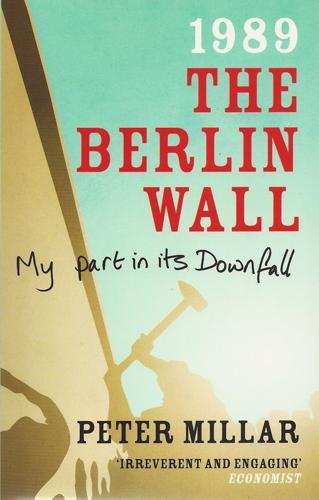
1989 The Berlin Wall: My Part in Its Downfall
by
Peter Millar
Published 1 Oct 2009
Gorbachev’s urbane, intelligent and highly fluent chief spokesman Gennady Gerasimov appeared on the US talk show Good Morning America – in itself something not long before totally unimaginable. Faced with the practical fait accompli of a new order in Eastern Europe, he was asked about the future of the Brezhnev Doctrine, which had laid down that the satellite states did what Moscow told them. With a smile he replied: ‘What we have now is the Sinatra Doctrine. He has a song: “I Did it My Way”.’ The world gasped. Barely four days later the weather had turned and I was stomping my feet to keep out the cold as I stood opposite the tribune erected on Unter den Linden waiting for the display of military might to mark the East German state’s fortieth birthday.
…
But it was Sunday night before it dawned on all of Czechoslovakia that their ‘Velvet Revolution’ had worked and they had taken their celebration to that extraordinary gavotte around their beautiful medieval and baroque city that once again had escaped intact without a fight. The rumours of Soviet tanks massing on the outskirts had proved to be a canard. Gorbachev had not done it in East Germany, he would not do it here. The Sinatra Doctrine was for real. And The Sunday Times foreign editor’s efforts to retrieve his wordy correspondent’s literary artifice were to be rewarded too when historian Martin Gilbert, compiling his History of the Twentieth Century a decade later, included that preposterous piece of prose intact. I had achieved one ambition: I had genuinely become a footnote in history.
…
Countries that, in a world divided into West and East, had been written off the mental as well as geographical map, rediscovered themselves and their place in history. At the same time, one of the major players wrote itself out of history. Gorbachev’s humane, logical and fundamentally decent liberalisation policies, famously summed up by his spokesman Gennady Gerasimov as the ‘Sinatra Doctrine’, were inevitably a step too far for some of the more recidivist hardliners in the Kremlin. With Moscow’s Eastern European empire largely liberated, the pressure within the Soviet Union itself, and its fifteen nominally confederated constituent republics, began to build towards boiling point.
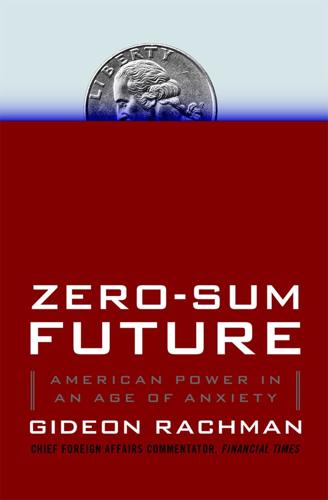
Zero-Sum Future: American Power in an Age of Anxiety
by
Gideon Rachman
Published 1 Feb 2011
In the typically dead language of the high Soviet era, he had proclaimed that “the sovereignty of each socialist country cannot be opposed to the interests of the world of socialism.”1 It fell to Gennady Gerasimov, Gorbachev’s sharp-tongued spokesman, who liked to show off his quick wit and mastery of Western culture, to confirm the change. Asked if Gorbachev’s speeches meant that the Brezhnev Doctrine was dead, he joked that it had been replaced by “the Sinatra doctrine.” From now on, the countries of Central Europe could do it their way.2 Gorbachev had visited Beijing in May 1989, an event that had helped to stir the hopes of the student demonstrators there. On June 4, 1989, just as the Chinese were sending the tanks into Tiananmen Square, Poland was voting in its first free elections since the imposition of communist rule.
…
In the end, the leadership held back, partly because of the intervention of civic leaders in Leipzig itself. The other crucial factor was Gorbachev. There were 380,000 Soviet troops stationed in East Germany. But when the Soviet leader had left East Germany, he had given firm instructions that they were to stay in their barracks.4 The Sinatra doctrine allowed nations like Poland and Czechoslovakia to reclaim their political independence. But it would be a mistake to believe that the countries of the former Soviet bloc were simply passive recipients of a political gift handed to them from Moscow. The groundwork for the restoration of political and economic freedom in Central Europe had been laid by dissidents, trade unionists, intellectuals, and ordinary people across the region over the previous decade and more.
…
China as interest of, 25 Thatcher compared with, 25, 31, 36, 38, 39–43, 45 recession, 16, 32, 34, 40, 77, 149 see also Great Recession regulation, financial, 111–12, 113, 200–201, 220 Reid, Michael, 73, 78, 299n Republicans, 103, 108, 126, 157, 161, 242–43 resource shortages, 204–7, 262, 263, 272 “responsibility to protect” (R2P), 131, 230, 231 Rice, Susan, 197–98, 289 Rise and Fall of the Great Powers, The (Kennedy), 88 Road to Serfdom, The (Hayek), 118 Rogers, Mike, 266 Rohatyn, Felix, 111 Romania, 67, 68 Roosevelt, Franklin, 38, 282 Rubin, Robert, 112, 117–18 Rudd, Kevin, 218 Rumsfeld, Donald, 104, 125, 209 rupee, Indian, 83 Russia, 35, 59, 60, 96, 117, 165, 199, 240, 243, 255, 273, 274, 275, 290 antiglobalization in, 160 authoritarianism of, 174, 175, 176, 234–38, 240–41, 248, 249 in BRICs, 76–77, 196 democracy in, 130, 146, 168, 237–38, 283 financial crisis in (1998), 107–8, 159, 237 global government and, 217, 218, 223 global problems and, 205, 206, 280 NATO and, 235, 236, 312n–13n as nuclear power, 224, 287, 288 UN and, 225–26, 245 win-win world and, 129–30 Rwanda, 131, 132, 208, 231 Saakashvili, Mikheil (Misha), 233–35 Sachs, Jeffrey, 209, 213, 217 Sakharov, Andrei, 58 Salinas de Gortari, Carlos, 74, 116 Sarkozy, Nicolas, 2, 8, 191, 194, 219, 269–70 Saudi Arabia, 204, 217, 221, 241, 272 savings and loan scandal, 296n Schlesinger, James, 204 Schroeder, Gerhard, 115 Schuman Declaration (1950), 219 Scowcroft, Brent, 180–81, 305n Seattle, Wash., antiglobalization in, 155–56 Senate, U.S., 90, 222 Siberia, 240, 274 Sinatra Doctrine, 64–65 Singapore, 60, 137–40, 143, 213 Singh, Manmohan, 15, 54, 79–83, 102–3, 116, 225, 243 Single European Act (1986), 49–51 Smith, Adam, 2, 17, 82, 113, 192 Smoot-Hawley tariffs, 267 socialism, 15–16, 30, 64, 81 British, 35, 36, 38, 49 in France, 46–49 Solana, Javier, 151 Solidarity, 66, 67 Somalia, 132, 209, 210, 256–57, 273 South Africa, 69–70, 176, 193, 244–45, 246, 262 South Korea, 6, 18, 60, 82, 142, 143, 159, 186, 187, 195, 273 sovereign wealth funds (SWFs), 193, 247 Soviet bloc, 6, 102 collapse of, 17, 18, 35–36, 58–59, 63–71, 76, 128 Soviet Union, 7, 34, 41, 87, 88, 167, 183, 233, 279, 285 Brezhnev Doctrine and, 64, 67 China compared with, 59–61 collapse of, 4, 11, 15, 19, 21, 43, 54, 69–70, 84, 85, 88, 90, 93, 100, 102, 105, 164, 261, 282 Fukuyama’s study of, 99–100 Gorbachev’s reforms in, 15, 16, 25, 27, 42, 53–61, 68, 100, 297n Nehru’s visit to, 81 Soviet bloc collapse and, 58–59, 61, 65–66 U.S. competition with, 131, 282, 284, 291 Spain, Spanish, 8, 72, 147, 165, 188, 235, 270 global government and, 219, 221, 226, 228 Spence, Jonathan, 23–24 Sri Lanka, 223, 231, 274 Stalin, Joseph, 27, 236, 237 Starbucks, 155, 261 State Department, U.S., 99, 100, 117, 188 State of Emergency (Buchanan), 260 Steinberg, James, 5, 129 Stiglitz, Joseph, 157, 159, 160, 314n stock market, 83, 218 in Japan, 18–19, 88–89 U.S., 2–3, 4, 40, 96–97, 107, 110, 165 Strauss-Kahn, Dominique, 152, 219 Sudan, 195, 205, 223, 226, 227, 231, 246, 247, 248, 275, 289 Sullivan, Andrew, 280 Summers, Larry, 7, 117–18, 156, 184 Suskind, Ron, 168 Sweden, 150, 156 Switzerland, 96, 101, 269 Taiwan, 60, 82, 136–37, 143, 186, 237, 249 Talbott, Strobe, 126, 217, 304n Taliban, 167, 239, 252 tariffs, 74, 75, 77, 83, 265, 266, 267 taxes, 49, 94, 109, 115, 216, 236, 267 cuts in, 17, 32, 35, 38, 39, 74, 75, 83, 116 Tax Reform Act (1986), 38 Tbilisi, 233, 234 Tea Party movement, 268 technology, 27, 56, 87, 111, 118–28, 131, 174, 203, 271 climate change and, 203, 204, 286–87 global warming and, 125–26 gloomy predictions and, 125, 204, 206 India and, 6, 81, 84–85, 141 peace and, 5–6, 126 U.S., 93, 95, 118–26, 165, 167, 184, 187, 261 see also information technology television, 119, 124, 135, 234–37, 285 Tennyson, Alfred, Lord, 225 Tequila crisis (1994), 77 terror, war on, 96, 165, 198, 199, 211, 212, 244, 245 terrorism, 36, 161–62, 166, 174, 198, 199, 210, 220, 257, 258, 259, 280 nuclear proliferation and, 211–12 in Pakistan, 211, 212, 251, 252, 256, 313n see also 9/11 Tett, Gillian, 123 Texas A&M, 179–81 Thailand, 6, 60, 142, 143, 159–60 Thatcher, Margaret, 16–17, 29–36, 39–52, 54, 69, 74, 89, 114, 136, 191, 279 Falklands War and, 34, 43, 76 France and, 45–46, 48, 49 Hayek and, 118 as “iron lady,” 34, 42, 45 M.
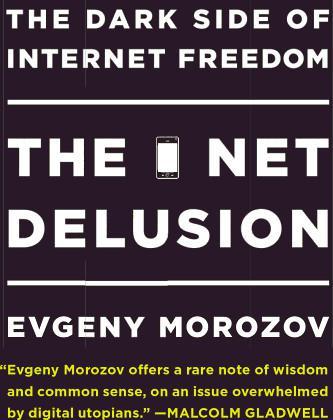
The Net Delusion: The Dark Side of Internet Freedom
by
Evgeny Morozov
Published 16 Nov 2010
In August 2010 they took their anti-South propaganda campaign to Twitter, setting up an account—supposedly through their foreign supporters—meant to challenge the South Korean version of events a hundred forty characters at a time. What Barbara Streisand Could Teach Nicolae Ceauşescu In the last few years of the Soviet Union’s existence, its most progressive leaders were fond of touting—half-jokingly, of course—their commitment to the “Sinatra doctrine”: the notion that Central and Eastern European states were free to go their own way, very much along the lines of Sinatra’s song “My Way.” On the Internet, though, Sinatra is out of luck; the buzzword du jour is the “Streisand effect”—the notion that the more you try to get something off the Internet, the more you fuel everyone’s interest in it, thus defeating the purpose of your original intervention.
…
See also individual search engines Searle, John Securing Cyberspace for the 44th Presidency (Lewis) Security Segal, Howard Sergeyeva, Maria Sex, and politics Shane, Scott Sharansky, Natan Sharp, Gene Sheridan, Barrett Shimko, Keith Shirk, Susan Shirky, Clay Shiyu Zhou SIM cards, prepaid Sinatra doctrine Singapore Skype Slacktivism Slee, Tom Smartphone SMS-filtering technology Snore, Evdins Social engineering A Social History of the Media (Briggs and Burke) Social network activism in Morocco See also Activism Social network lawlessness Social network surveillance. See also Surveillance Social network(s) and censorship and democracy, threats to and foreign policy and Internet, regulation of and Internet search surveillance and narcissism See also individual social networks; Social network activism; Social network lawlessness; Social network surveillance Social problems Solow, Robert Solzhenitsyn, Aleksandr Somalia Soros, George South Korea “Sovereignty in Cyberspace” (Franzese) Soviet republics The Soviet Story (documentary) Soviet Union collapse of and information technology Spectator Specter, Arlen Speer, Albert Spin.
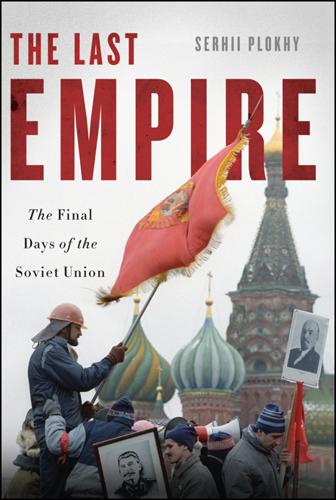
The Last Empire: The Final Days of the Soviet Union
by
Serhii Plokhy
Published 12 May 2014
In the forty-seven-page treaty, accompanied by seven hundred pages of protocols, the two presidents would agree not just to curb the arms race but also to begin reversing it.2 The confrontation between the world’s two most powerful countries, which began soon after World War II and had brought the planet to the brink of nuclear Armageddon, was now all but over. With the fall of the Berlin Wall in November 1989, German reunification under way, and Mikhail Gorbachev adopting the “Sinatra doctrine,” which allowed Moscow’s East European clients to “do it their way” and eventually leave the Kremlin’s embrace, the conflict at the core of the Cold War was resolved. Soviet troops began to leave East Germany and other countries of the region. But the nuclear arsenals were virtually unaffected by these changes in the political climate.
…
See Strategic Defense Initiative Secrets, documents, 369 Serbia, 272 Sevastianov (cosmonaut), 327 Sevastopol, 293 Shakhnazarov, Georgii, 81, 219, 222, 248–250, 269 Belavezha Agreement and, 320 CIS and, 358 new union treaty and, 397 on Ukrainian sovereignty, 259, 280, 293–294 Shakhnovsky, Vasilii, 150 Shakhrai, Sergei, 219, 220, 222, 297 Belavezha Agreement and, 304, 305, 306, 309 center-republic relations and, 249 Shamir, Yitzhak, 233 Shaposhnikov, Yevgenii, 117–118, 125, 138, 140, 288 Almaty summit and, 361–362 Belavezha Agreement and, 312–313, 339 center-republic relations and, 205, 368 CIS and, 322, 324, 361–362 on Gorbachev, 377, 397 nuclear briefcases and, 340, 371, 376 Shatalin, Stanislav, 216 Shcherbak, Yurii, 175, 179, 292 Shcherbytsky, Volodymyr, 53, 54–55, 56, 59 Shebarshin, Leonid, 135, 136 Shelest, Petro, 53 Shenin, Oleg, 31 Shevardnadze, Eduard, 38, 95, 103, 111, 193, 200, 271, 337 Belavezha Agreement and, 325, 335, 338, 343 Ukrainian sovereignty and, 262 Shevchenko, Taras, 57, 386 Shield, 96 Shirkovsky, Eduard, 311–312 Short History of the Communist Party, 42 Shushkevich, Stanislaŭ, xxii, 264, 297, 312 Almaty summit and, 359–360, 362–363, 364 Belavezha Agreement and, 302, 307, 314, 315, 320, 348 biography, 300, 303 new union treaty and, 257 Ukrainian sovereignty and, 303–304 Siberia, 298 Silaev, Ivan, 94, 145–146, 147, 163, 183, 202, 299 economic situation, 205 resignation of, 214 union-to-commonwealth transfer and, 370 Simons, Thomas, 195 Sinatra doctrine, 4 Skoryk, Larysa, 279 Slavic Union, Solzhenitsyn’s, 298, 352, 353, 402 See also Belarus; Kazakhstan; Russia; Ukraine Snegur, Mircea, 158 Sobchak, Anatolii, 120, 160, 300, 330 food shortage and, 205, 220–221 Gorbachev and support from, 271–272 sovereignty, Kazakhstan and, 181 Ukrainian sovereignty and, 172, 175–176, 179, 180 Solzhenitsyn, Aleksandr, 298, 352, 353, 402 “Southern Siberia,” 298 Sovereignty Armenia and, 173, 265 Azerbaijan, 173 Baltic republics and, 30, 34–35, 38, 39, 45–46, 49–50, 174, 187, 193–198 Belarus and, 173, 177 border disputes and, 172, 176–177, 181–182, 192–194, 200–201, 265, 308 Chechnia and, 242–243, 245 Communist Party and, 34–40 Crimea and, 171, 281–282 demonstrations, 38–39, 64–65, 117–118, 152–153, 164, 179–180, 206, 245, 282 Estonia and, 174, 175, 195, 197 Georgia and, 173, 175, 265 Kazakhstan and, 178, 179, 181, 182, 249, 347, 351 Kyrgyzstan and, 173 Latvia and, 174, 175, 197 Lithuania and, 34, 37, 38, 50, 174, 198 Moldova and, 173, 178 Rukh and, 178, 179–180, 266, 285–286 Russia and, 34, 35–37, 40, 41, 136–137, 143–144 Soviet republics and, 34–41, 45, 48–50, 53–54, 57, 59–62, 64–65, 136–137, 143–144, 152–182, 185, 191–201, 206–207, 242–243, 245, 249–250, 275–294, 295–297, 299, 303–304, 347, 351, 363–364, 402 Ukraine and, 37, 48–50, 53–54, 57, 59–62, 64–65, 153–155, 163–182, 184, 187, 206–207, 255–256, 258–270, 272–274, 275–294, 295–297, 299, 303–304, 363–364, 402 Union of Sovereign States and, 251 Uzbekistan and, 173 Soviet republics border disputes, 172, 176–177 with center-republic relations, 202–209, 211, 213–239, 241–243, 245–251, 270–271, 281, 308–309, 349–350, 397–398, 400 food shortage in, 205, 208, 214, 220–221, 237, 242, 340, 351 new union treaty and, 41, 48, 49, 61–62, 134, 136–137, 144, 162, 163, 184–185, 219, 220–223, 248–251, 281 Russia and economic treaty with post-, 206, 221–230 sovereignty and, 34–41, 45, 48–50, 53–54, 57, 59–62, 64–65, 136–137, 143–144, 152–182, 185, 191–201, 206–207, 242–243, 245, 249–250, 275–294, 295–297, 299, 303–304, 347, 351, 363–364, 402 Union of Sovereign States and, 251 See also specific republics Soviet Union Afghanistan and, 202–203, 404, 407 Cold War and, 192 Cuba and, 21, 202–203, 404 dissolution of, 309–310, 314–315, 320, 323, 362, 366, 389, 394 IMF and membership of, 17, 18 leadership, line of, 9 Marshall Plan for, 205–206, 329–331, 341 most-favored-nation trade status and, 21 population, xvii U.S. relations with, 78, 199–206, 208, 232, 234–235, 237, 238–239, 337–338, 379, 404, 407 wiretapping by, 84, 88–89 Soviet Union, collapse of appeals for, 178, 182 Belavezha Agreement and, xx–xxi, 297–310, 312–316, 319–343, 348, 359, 397, 400 with center-republic relations, 202–209, 211, 213–239, 241–243, 245–251, 270–271, 281, 308–309, 349–350, 368, 397–398, 400 as conspiracy theory and CIA plot, xvi crucial period before, xviii–xix, xx–xxi, 64 electoral democracy and, xviii, 13–14, 33, 394 Gorbachev’s prevention efforts and, 177, 183–187, 216, 255–258, 272–273, 279–281, 322, 324 Gorbachev’s resignation with, xiii–xiv, xviii–xix, 40, 74, 148, 149–150, 327–328, 367–386 as last empire, xvii–xviii, xx–xxii, 34, 40, 178, 182, 185–186, 393 Ukrainian referendum and, 275–294, 303–304, 399, 402 with union-to-commonwealth transfer of power, xiii–xiv, xviii–xix, 40, 74, 148, 149–150, 327–328, 344, 365–387 U.S. and official stance on, xiii–xiv, 76–77, 328–329, 379, 380–381, 389–390 U.S. efforts to prevent, xiv–xvi, xx, xxii, 10, 73, 78–79, 123–124, 205–209, 211, 381, 404 Yeltsin’s prevention efforts and, 175–188, 216, 295 Space, post-Soviet with distancing of Baltic states, 407 Gorbachev’s treatment in, 372, 377–378, 379, 382, 384–387 ideas for, 298 1991 and influence on, 406 Russia’s influence in, xv, 328, 406 Ukraine’s influence in, 328, 407 U.S. support for Russia in, xv See also Almaty summit; Belavezha Agreement; Center-republic relations; Referendum, in Ukraine Spain, 231–233, 235 Sputnik, 5 Stalin, Joseph, 3, 5, 12, 56, 80, 82, 192, 202, 328, 338 Chechnia and, 243 Crimean Tatars and, 281 Hitler and, 400 secret documents of, 369 UN and, 393 Stankevich, Sergei sovereignty, Kazakhstan and, 181 Ukrainian sovereignty and, 172, 175–176, 178–179, 181 START (Strategic Arms Reduction Treaty) I, 4, 9, 17, 20–23 importance of, 47 Talbott on, 15 START (Strategic Arms Reduction Treaty) II, 211 State funds, emptied, 259, 270–271 State of the Union Address, 388–390, 407 “Statement of the President of the USSR and the Supreme Leaders of the Republics” (“10 + 1”) (Nazarbayev), 184–185, 186 Stepanchuk, John, 153, 159–160, 166 Stepkin, Petro, 169–170 Strategic Arms Limitation Treaty.

Roller-Coaster: Europe, 1950-2017
by
Ian Kershaw
Published 29 Aug 2018
Gorbachev was about to step out of the wings and onto centre stage, not just in the Soviet Union but in world affairs. 8 Easterly Wind of Change We know that our road is difficult. However, the choice has been made and we have paved the way for perestroika. Mikhail Gorbachev, speech to the Soviet people at New Year 1989 We now have the Frank Sinatra doctrine. He has a song, ‘I Did It My Way’. So every country decides on its own which road to take. Soviet Foreign Ministry spokesman Gennadi Gerasimov, October 1989 Hardly anyone, whether in Eastern or in Western Europe, foresaw what was coming. Radical change in an apparently ossified Soviet bloc seemed unthinkable.
…
In Prague in April 1987 he declared the Soviet Union’s acceptance of the right of each socialist land to determine its own future in the light of national interest. The following year Gorbachev again plainly stipulated that the states in the Soviet bloc had ‘the right to choose’. The Soviet Foreign Ministry spokesman, Gennady Gerasimov, later wittily remarked that the ‘Brezhnev doctrine’ had been replaced by the ‘Sinatra doctrine’ – letting the Eastern Europeans do it their way. So there would be no future resort to Soviet armed might in Eastern Europe. Leaders of the satellite countries had to recognize that no rescue was forthcoming from the Soviet Union if they failed to satisfy the demands of their peoples. They were not over-anxious to pass the message on to their peoples, since their own power depended upon them continuing to believe that Soviet intervention remained a possibility.

Tunnel 29
by
Helena Merriman
Published 24 Aug 2021
The previous year, in 1988, President Reagan had visited Gorbachev in Moscow, where the two men announced they were now ‘friends’, despite Reagan’s visit to Berlin, where he’d called on Mr Gorbachev to ‘tear down this Wall!’ Then a few months ago, in July 1989, Mikhail Gorbachev had announced that his army would no longer prop up communist governments in Eastern Europe; people could choose their own rulers. The ‘Sinatra doctrine’, he jokingly called it – people could now do things ‘their way’. And within weeks, they were all doing just that. In Hungary, people voted for a new reformist government, which pulled down its barbed-wire fence on the border of Austria. In Poland, semi-free elections were held, the communists losing hundreds of seats.
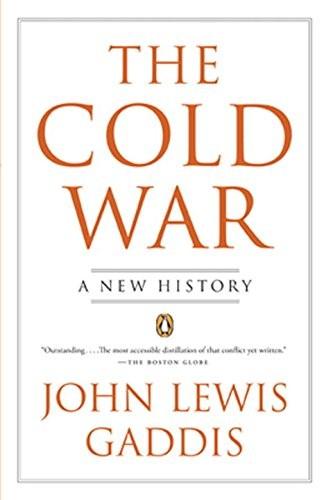
The Cold War: A New History
by
John Lewis Gaddis
Published 1 Jan 2005
Everywhere things are turning out different from what had been imagined and proposed.” By October, Gennadi Gerasimov, the Soviet foreign ministry press spokesman, could even joke about it. “You know the Frank Sinatra song ‘My Way’?” he replied, when asked what was left of the Brezhnev Doctrine. “Hungary and Poland are doing it their way. We now have the Sinatra doctrine.”25 At the end of the year, nothing was left: what the Red Army had won in World War II, what Stalin had consolidated, what Khrushchev, Brezhnev, Andropov, and even Chernenko had sought to preserve, was all lost. Gorbachev was determined to make the best of it. “By no means should everything that has happened be considered in a negative light,” he told Bush at their first summit meeting, held at Malta in December, 1989:We have managed to avoid a large-scale war for 45 years. . . .
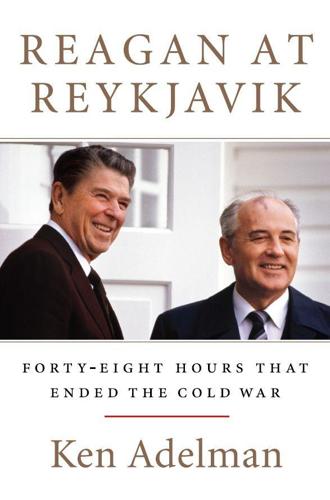
Reagan at Reykjavik: Forty-Eight Hours That Ended the Cold War
by
Ken Adelman
Published 5 May 2014
Back in Moscow by then, Gorbachev approved a speech by Eduard Shevardnadze supporting independence for all countries, including those in the Warsaw Pact. When asked on Good Morning America about the speech, Kremlin spokesman Gennadi Gerasimov declared “the Brezhnev Doctrine . . . dead.” When probed on what might replace it, he replied cleverly, “The Sinatra doctrine,” referring to “My Way,” the crooner’s signature song. “Every country decides on its own which road to take,” Gerasimov said smiling. Taking the cue, the East German people did it their way. They summarily ousted Honecker, who was replaced by Egon Krenz, who summarily ousted his entire cabinet.
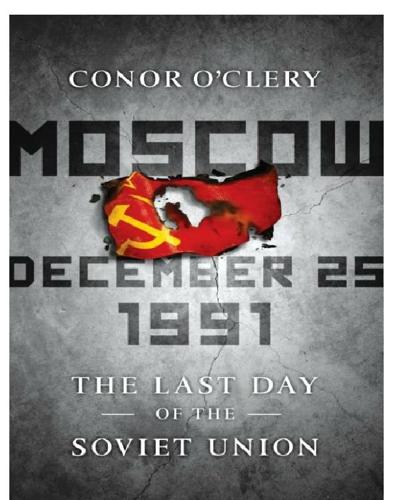
Moscow, December 25th, 1991
by
Conor O'Clery
Published 31 Jul 2011
He created the conditions for the freedom of East European countries that had been in thrall to Moscow since World War II. He made it clear that the doctrinaire communist regimes there could no longer count on Soviet tanks to prop them up. At a Foreign Ministry briefing Gerasimov called this the Frank Sinatra doctrine—they could do it their way. It led to a series of counterrevolutions throughout 1989, in which one communist regime after another in Eastern Europe was ousted. They began in Poland and spread to Hungary, East Germany, Bulgaria, Czechoslovakia, and Romania. The Berlin Wall fell in November, leading to German reunification a year later.
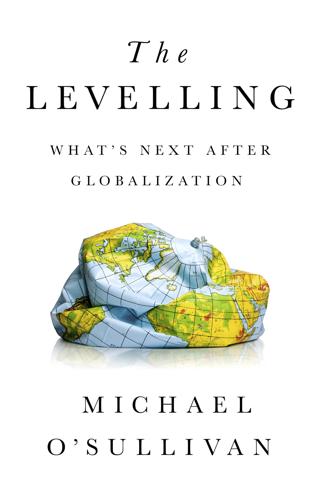
The Levelling: What’s Next After Globalization
by
Michael O’sullivan
Published 28 May 2019
Singapore and Hong Kong, whose economic growth in the past thirty years has easily outstripped that of competing small states like Ireland and New Zealand, have become entrepôt economies, importing and then exporting huge quantities of goods and services. They have been followed in this regard by other Asian countries, whose approach to development is distinctive enough to be labeled the “Sinatra” doctrine (i.e., “Do it my way”). Broadly speaking, what China and many other Asian nations have in common is the active “Colbertian” direction to economic policy. Jean-Baptiste Colbert was minister of finance in France for much of the late seventeenth century and was known for using the state as a promotor of economic activity.
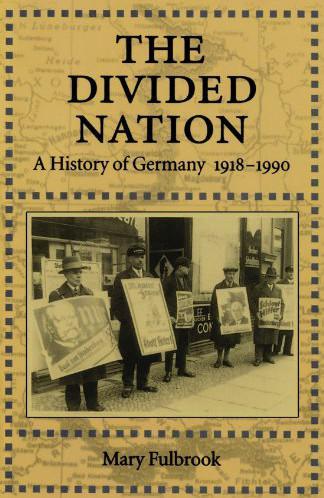
The Divided Nation: A History of Germany, 1918-1990
by
Mary Fulbrook
Published 14 Oct 1991
This was the renunciation of the so-called Brezhnev Doctrine of legitimate interference in the affairs of other states which had facilitated the military suppression of the Prague Spring in 1968 and its replacement by what Soviet spokesman Gennady Gerasimov so disarmingly called, in a press conference in the autumn of 1989, the 'Sinatra Doctrine' of 'letting them do it their way'. In this context, in the spring and summer of 1989 the Page 323 communist regimes in Poland and Hungary underwent radical transformation, inaugurating the whole process of revolutionary change in eastern Europe. After a decade of dealing with economic difficulty and political unrest, the Polish government collapsed, and on 16 August 1989 was replaced by a Solidarity led coalition.
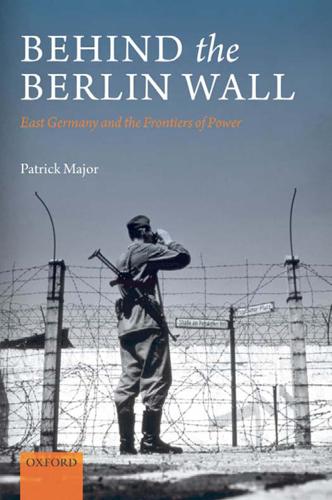
Behind the Berlin Wall: East Germany and the Frontiers of Power
by
Patrick Major
Published 5 Nov 2009
The so-called ‘Brezhnev doctrine’, giving the Soviet Union the right to intervene in eastern bloc states to preserve socialism, most vividly demonstrated in the crushing of the Prague Spring in August 1968, but tacitly shelved during the Polish crisis of 1980–81, was formally renounced in favour of the ‘Sinatra doctrine’.¹⁷ From now on, each socialist state could do it ‘its way’. In November 1986 Gorbachev told fellow communist leaders that they must rely on their own legitimacy rather than Soviet intervention,¹⁸ and in July 1988 added: ‘Every party is responsible for its own affairs. . . . No attempts can be tolerated not to respect one another or to interfere in the internal affairs of others.’¹⁹ The SED delegation was literally speechless.
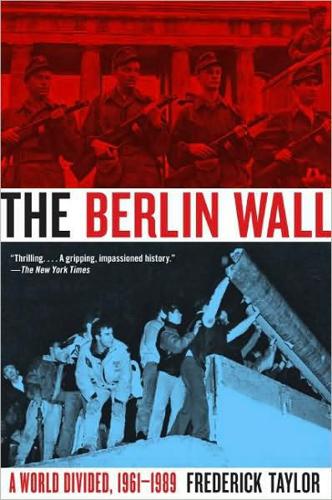
The Berlin Wall: A World Divided, 1961-1989
by
Frederick Taylor
Published 26 May 2008
This principle, formalised following the crushing of the Prague Spring in 1968, permitted the Soviet Union to intervene against any country within the Warsaw Pact that attempted to change its political or social system. Addressing the Council of Europe in Strasbourg, Gorbachev declared that all European countries were now free to choose their own social and political order and excluded the use of military force between East and West or ‘within alliances’. One of his aides referred to this jokily as the ‘Sinatra Doctrine’, with a play on the singer’s great hit ‘My Way’-countries could now do things ‘their way’. The bizarre contrast between East Germany’s continuing espousal of ‘dinosaur’ Marxism-Leninism and the new spirit of openness and risk in Moscow was shown by the Honecker regime’s unheard-of decision, in 1989, to forbid the distribution of certain Soviet publications in East Germany.
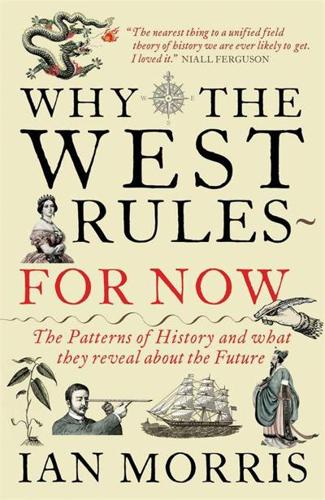
Why the West Rules--For Now: The Patterns of History, and What They Reveal About the Future
by
Ian Morris
Published 11 Oct 2010
Pictures flashed around the world of torn bodies, crushed bicycles, and a lone, unknown protestor blocking the path of advancing tanks. Repression won in China, but even when Hungary and Poland announced multiparty elections, Gorbachev still resisted Deng’s lead. Following what one minister called the Sinatra Doctrine, he left the Soviet satellites to do it their way. So astonished was the newly elected Polish prime minister that he fainted during his own inauguration. Testing the limits, Hungarian troops rolled up the barbed wire along their border with Austria. Thousands of East Germans “vacationing” in Hungary abandoned their cars and walked across the border to freedom.

In Europe
by
Geert Mak
Published 15 Sep 2004
The party organ Népszabadság (People's Freedom) appeared for the first time without the slogan ‘Workers of the world, unite’. Meanwhile, Poland opened its borders to East German refugees in transit. In Moscow a government spokesman told foreign journalists that the Brezhnev doctrine of military interventions had been replaced by ‘the Sinatra doctrine: “My Way”.’ Honecker stepped down on 18 October, eleven days after the celebration of East Germany's fortieth anniversary. His successor, Egon Krenz, was horrified when he encountered the financial shambles of the DDR. According to a report from the central planning agency, the country subsisted almost entirely on loans from the West.